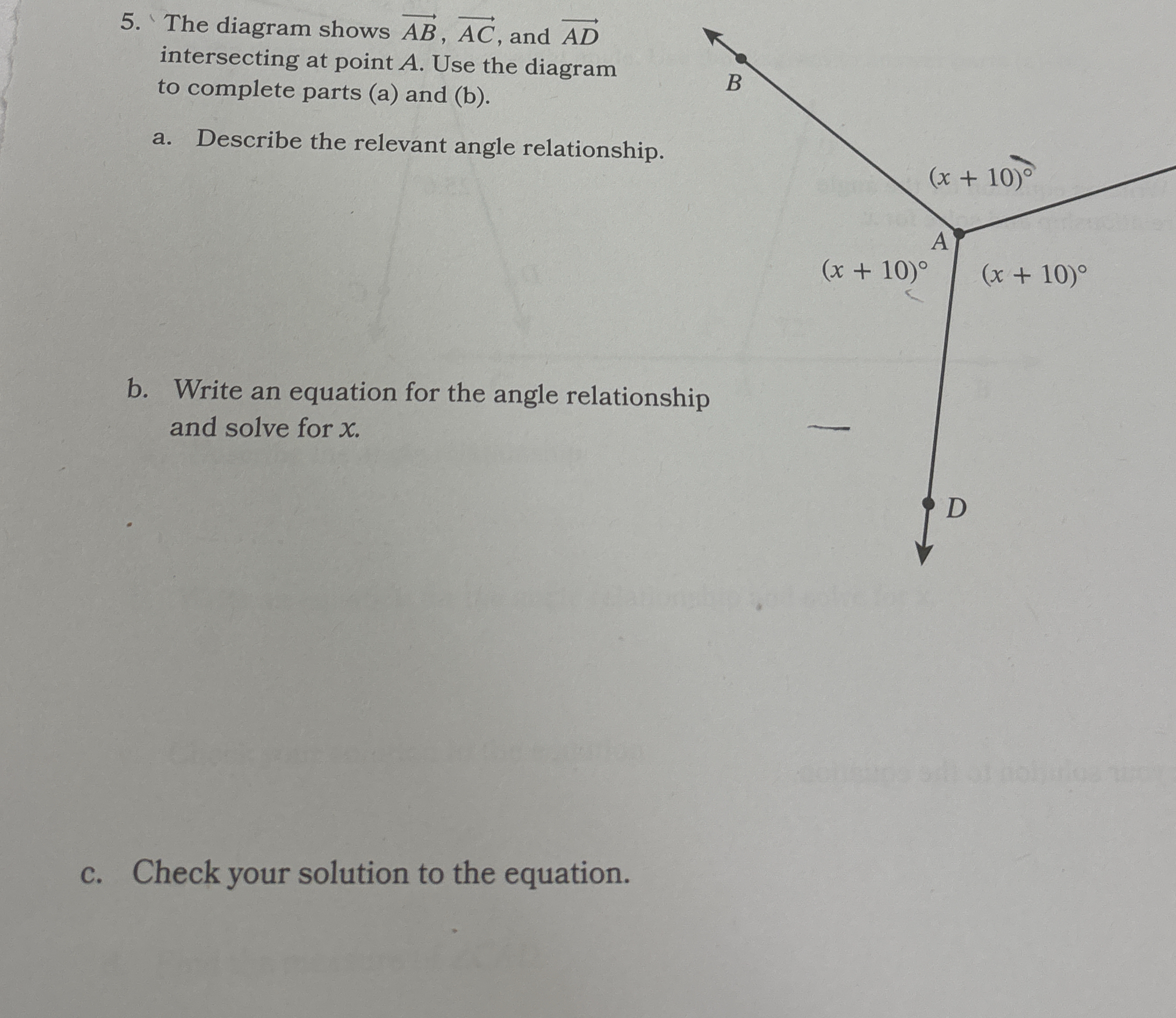The diagram shows AB, AC, and AD intersecting at point A. a. Describe the relevant angle relationship. b. Write an equation for the angle relationship and solve for x. c. Check you... The diagram shows AB, AC, and AD intersecting at point A. a. Describe the relevant angle relationship. b. Write an equation for the angle relationship and solve for x. c. Check your solution to the equation.

Understand the Problem
The question involves analyzing a diagram of intersecting lines and requires describing the angle relationships, setting up an equation based on those relationships, solving for a variable x, and verifying the solution.
Answer
The value of \( x \) is \( 80 \).
Answer for screen readers
The value of ( x ) is ( 80 ).
Steps to Solve
- Identify angle relationships
From the diagram, we observe that angles formed at point A are vertical angles. Vertical angles are equal, so we have:
$$(x + 10)^\circ = (x + 10)^\circ$$
- Set up the equation
Since there are two angles at point A that are equal to each other, we can express this as:
$$(x + 10) + (x + 10) = 180$$
This represents that the two angles along with the straight angle on line AD must equal 180 degrees.
- Solve for x
Now, simplify the equation from Step 2:
$$2(x + 10) = 180$$
Then distribute:
$$2x + 20 = 180$$
Next, isolate $x$:
$$2x = 180 - 20$$ $$2x = 160$$
Divide both sides by 2:
$$x = 80$$
- Check the solution
Substitute $x = 80$ back into the original angle expressions to validate:
$$(80 + 10) = 90^\circ$$
Since both angles equal $90^\circ$, the solution is verified.
The value of ( x ) is ( 80 ).
More Information
This problem involves reasoning with angle relationships, specifically vertical angles and supplementary angles. The understanding that vertical angles are equal allows us to set up the equation necessary to solve for ( x ).
Tips
- Assuming angles are not equal when they are vertical angles. Always remember vertical angles are equal.
- Incorrectly summing the angles - ensure to balance the equation correctly if working with supplementary angles.
AI-generated content may contain errors. Please verify critical information